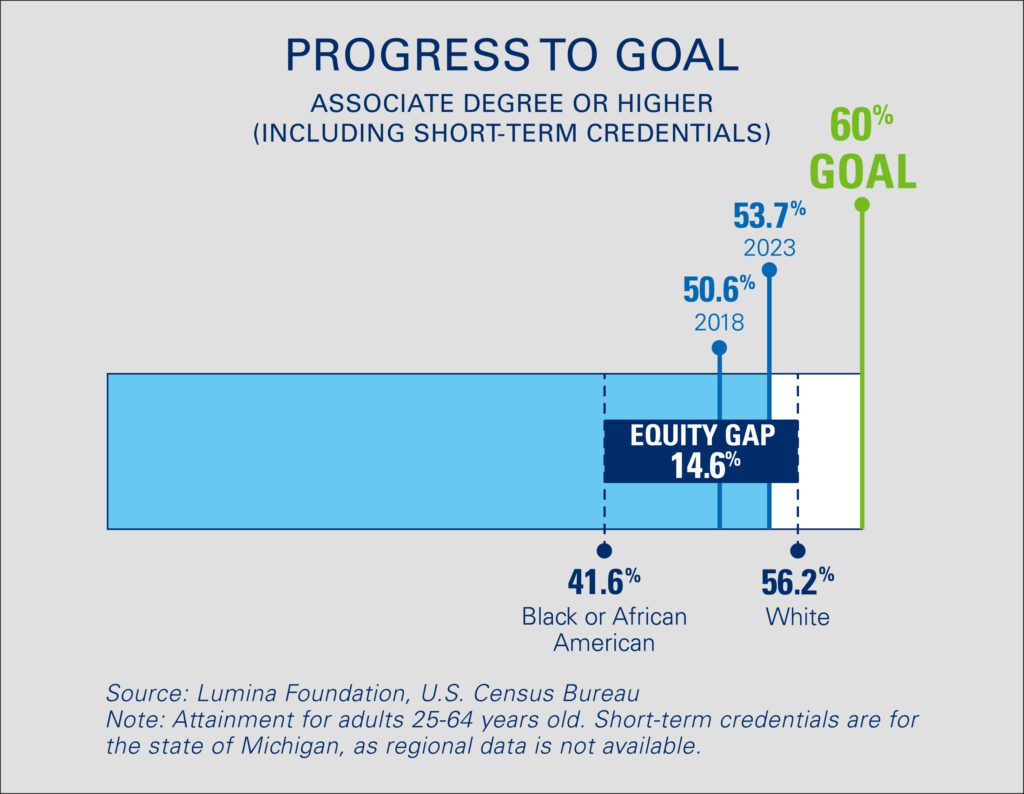Progress Toward 60% by 2030 Continues
In the innovation economy, the need for highly skilled talent is evolving, and so must efforts to increase education beyond high school. That is why the Detroit Regional Chamber set the 60% by 2030 and racial equity goals for the Region — work that is gaining importance as enrollment challenges emerge.
GOAL: INCREASE POSTSECONDARY EDUCATIONAL ATTAINMENT TO 60% AND CUT THE RACIAL EQUITY GAP IN HALF BY 2030.
Since the Detroit Regional Chamber set the 60% by 2030 educational goal for the Detroit Region:
- Post high school attainment in the Detroit Region has increased nearly three percentage points.
- Gov. Gretchen Whitmer announced the 60% goal for Michigan.
- Regional and statewide initiatives — such as the Michigan Achievement Scholarship and Michigan Reconnect — have been launched to help reach the overall 60% attainment goal.

K -12 + 2: An Overdue Cultural Shift in Education
The lack of good-paying jobs for those with only a high school diploma requires rethinking Michigan’s approach to higher education. The state is working toward 60% post-high school educational attainment by 2030, but that is only part of the equation keep the Detroit Region, and entire state of Michigan, globally competitive.
Just as society recognized the increased complexity of the world following World War II by subsequently moving from a seventh grade to a 12th-grade standard, Michigan needs to make a similar cultural shift today through K-12 + 2. This would set the expectation that every Michigander should complete formalized training and education beyond high school, such as a skilled certificate, or an associate or bachelor’s degree.










